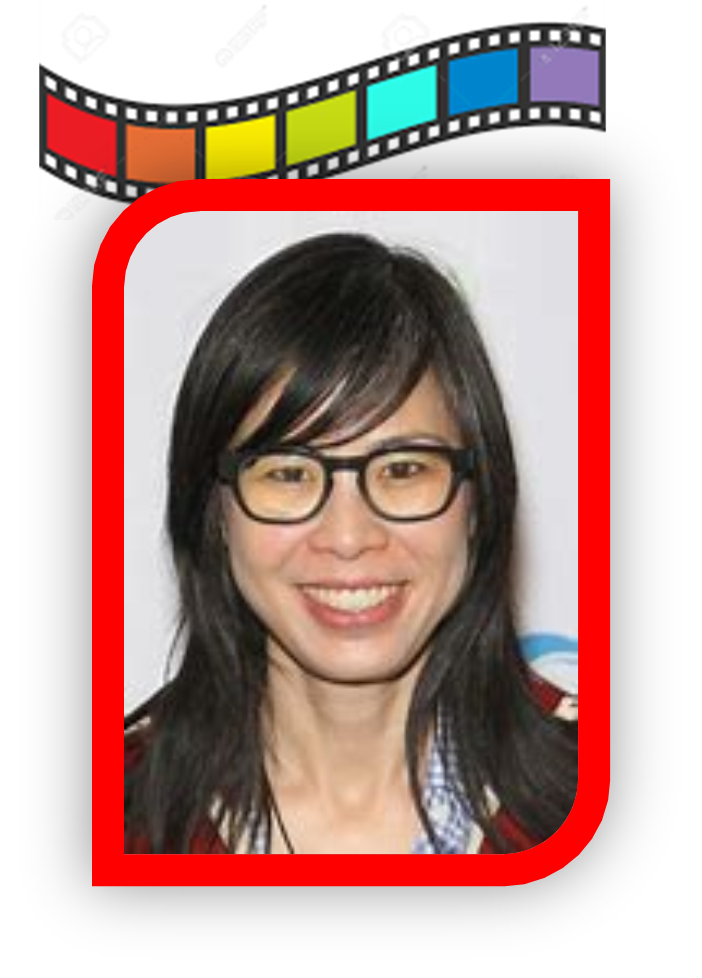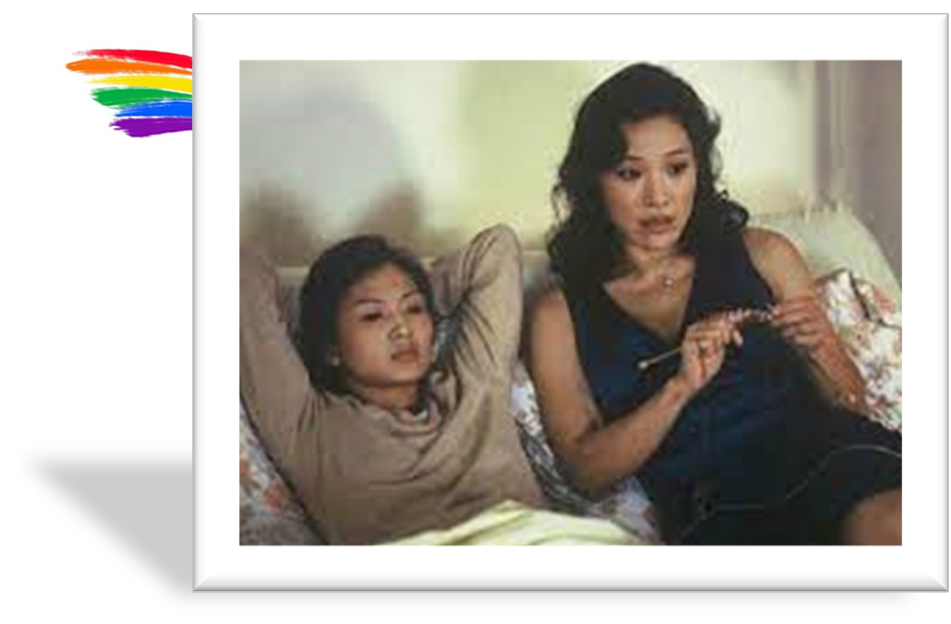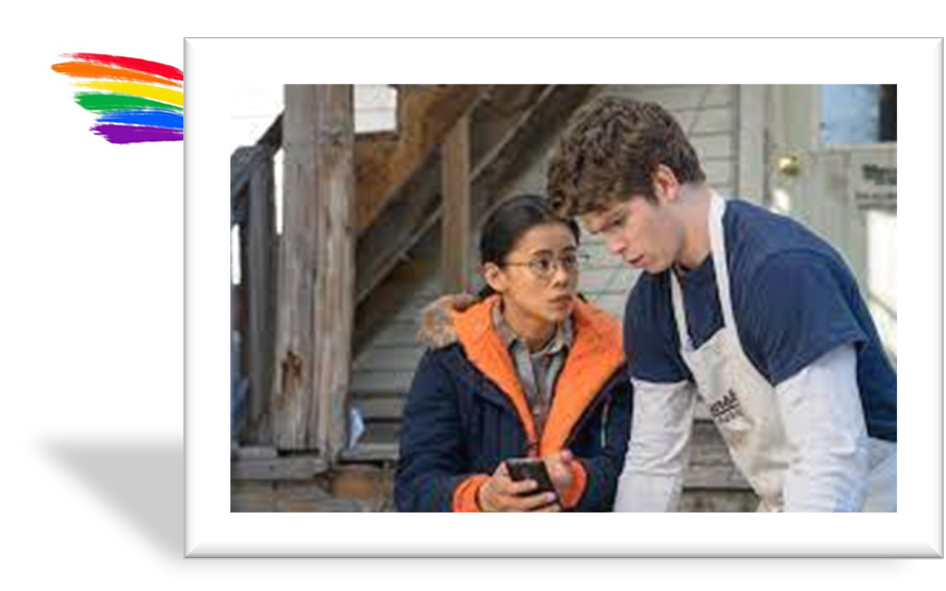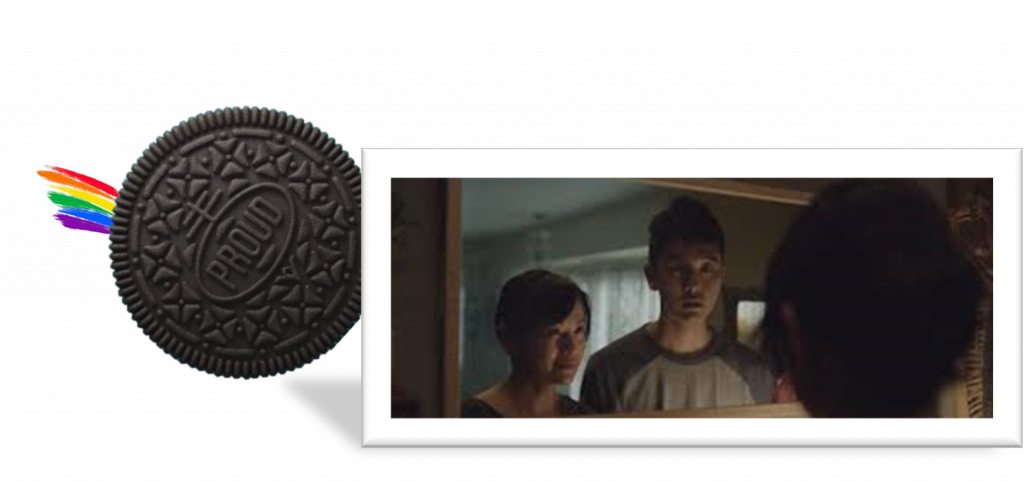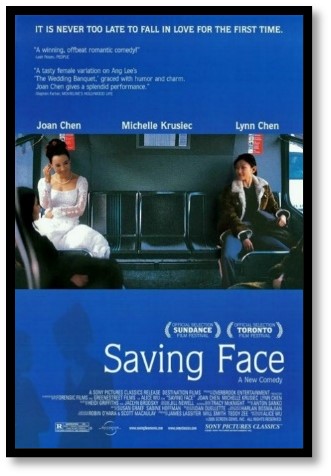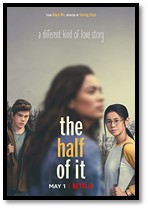LGBTQ+ History Month
Alice Wu
Film Director and Screenwriter
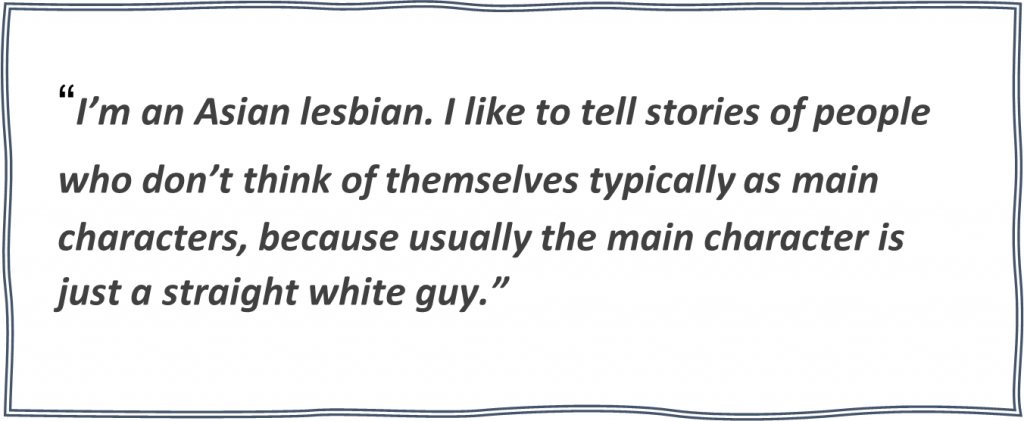
Have you ever fancied a career change?
Can you see yourself singing, acting, or even directing a film?
Well Alice Wu may be the inspiration you need.
Her films are seen as providing an authentic, original voice for Asian lesbians. For most LGBTQ+ people telling your family is the toughest part of coming out. This can be a confusing, emotional time with each hoping for acceptance and compassion. Unfortunately as Alice found out, the process may take a considerable amount of time. The difficulties of coming out to her Chinese mother pushed Alice to eventually leave her job and follow her passion to become a director and screenwriter.
Who is Alice Wu?
Alice grew up in the San Francisco Bay area, studied Computer Science at MIT and then went onto study at Stanford University. She worked as a software engineer for Microsoft in Seattle and pursued her passion by studying screen writing at night classes. Her first film ‘Saving Face’ was inspired by her own experience of coming out as a lesbian aged nineteen. The difficulties Alice faced being accepted by her family and the process of reconciliation years later have inspired her writing.
What films has Alice Wu written and directed?
Saving Face (2004), premiered at the Toronto and Sundance Film Festivals where it was acquired and released by Sony Pictures. Alice later received the Visionary award at the San Diego Asian Film Festival. This ground-breaking romantic comedy follows Wilhelmina, a medical student who navigates relationships with her girlfriend and her unexpectedly pregnant mother.
The character of Wilhelmina Pang showcases a kind, considerate and somewhat socially awkward medical student. She is a talented rising star in the world of surgery without showing any of the ego attached to such a respected post. Her humble and thoughtful approach has endeared her to those around her. In contrast the character of her mother is socially confident but child-like when faced by her own traditionalist father. The position both mother and daughter find themselves in, place them as outcasts when viewed by the traditional Chinese views shown through their family and the wider Chinese community.
Wilhelmina struggles to openly tell her mother that she is a lesbian much to the annoyance of her girlfriend. She plays along with the ruse to find her a husband, engaging politely with the potential matches chosen by her mother. Her mothers surprise pregnancy and refusal to disclose the father of her unborn child places both characters in a strangely aligned progression. The film shows how easily both characters could conform to expectations. Wilhelmina by keeping quiet about her other life and her mother by remarry for the sake of the unborn child. The pressures each faced whilst bravely navigating into their desired lives were realist and engendered empathy from the viewer.
Half of it (2020), This film received the Founders Award for Best Narrative Feature at the 2020 Tribeca Film Festival. There was a 15-year gap from Alices first film, during which time she carer for her mother and returned to work as a software engineer.
The storyline is a parody of Edmond Roslands play; Cyrano de Bergerac written in 1897. In the play Cyrano, a courteous, intelligent character finds his deep self-consciousness of his abnormally large nose creates a barrier to finding real love. In contrast, in this coming-of-age comedy smart cash-strapped teen Ellie Chu agrees to write love letters for an athlete called Paul. She becomes his friend and proceeds to fall for his crush, Aster the beautiful girl of both their dreams.
The film is set in the town of Squahamish a sleepy backwater in Washington State. It shows the grittier part of town and left me with the impression I had gained an honest insight into the lives of the main characters. The character of Ellie is studious, practical, and driven by a need to support her father, whose life is hampered by his difficulties in speaking English. Pauls view of life in its simplest form is endearing and provides a challenge to Ellies own views. The way these unlikely friends support and interacted, gently brings out how friendships help to challenge your views and the importance of small acts in forming bonds with others.
The Note – being released 04/04/2022, is an initiative with stories from LGBTQ+ people, providing education and promoting active and consistent allyship throughout the year. This 2-minute short film tells the story of a young Chinese American man and follows the process of him coming out as gay to his family members. It starts with him speaking to his parents and then to him rehearsing how to tell his grandmother. Before he speaks to his grandmother, his mother hands him a note showing her support for him. The end of the film has the message ‘Coming out doesn’t just happen once. Be a lifelong ally.’ This short film has strong links with ‘Oreo’ who are supporting the LGBTQ+ lifelong ally campaign.
Why is Alice considered such an important LGBTQ+ screenwriter/director?
I grew up in an era when Asians were rarely the main characters in films and were often in limited roles, I have been excited to see the blossoming emergence of Asian focused films such as those directed by Alice Wu. I admire her ability to retain the authenticity of the characters and promote their flaws, highlighting both their vulnerability and core strengths.
She is not only known for sharing the experiences of characters not usually prominent in Hollywood, but also for opting to cast fresh faces. I am not alone in enjoying her ability to create empathy and find common ground, Alice is gaining a growing base of supporters through her pioneering filmmaking.
It’s important to see people who hold our own identities, circumstances, and past experiences highlighted in significant film roles. The absence of such characters enforce stereotypes and marginalise our lived experiences. Alice Wu’s experience as a lesbian Asian woman has informed much of her screenwriting and directing. “I’m an Asian lesbian. I like to tell stories of people who do not think of themselves typically as main characters, because usually the main character is just a straight white guy.” (Stanford Daily 2020) [1].
[1] https://stanforddaily.com/2020/07/08/introducing-alice-wu-a-qa-with-the-director-of-the-half-of-it/
 Library
Library Kiran Adams
Kiran Adams 339
339